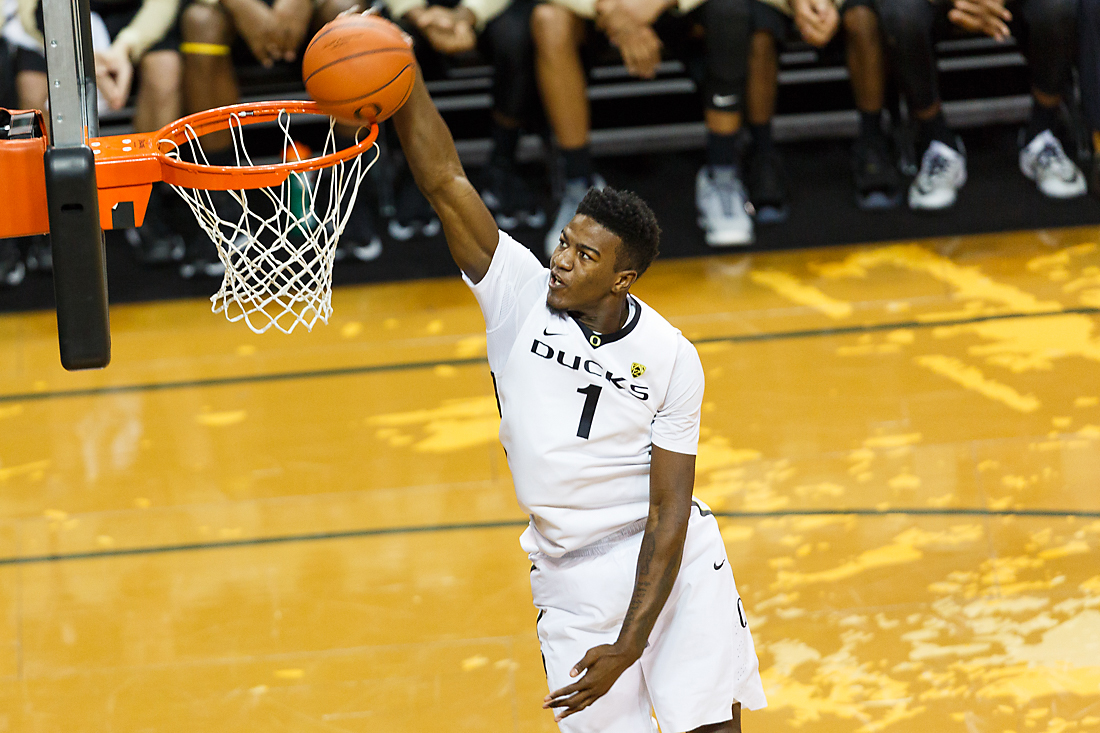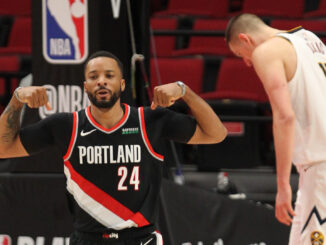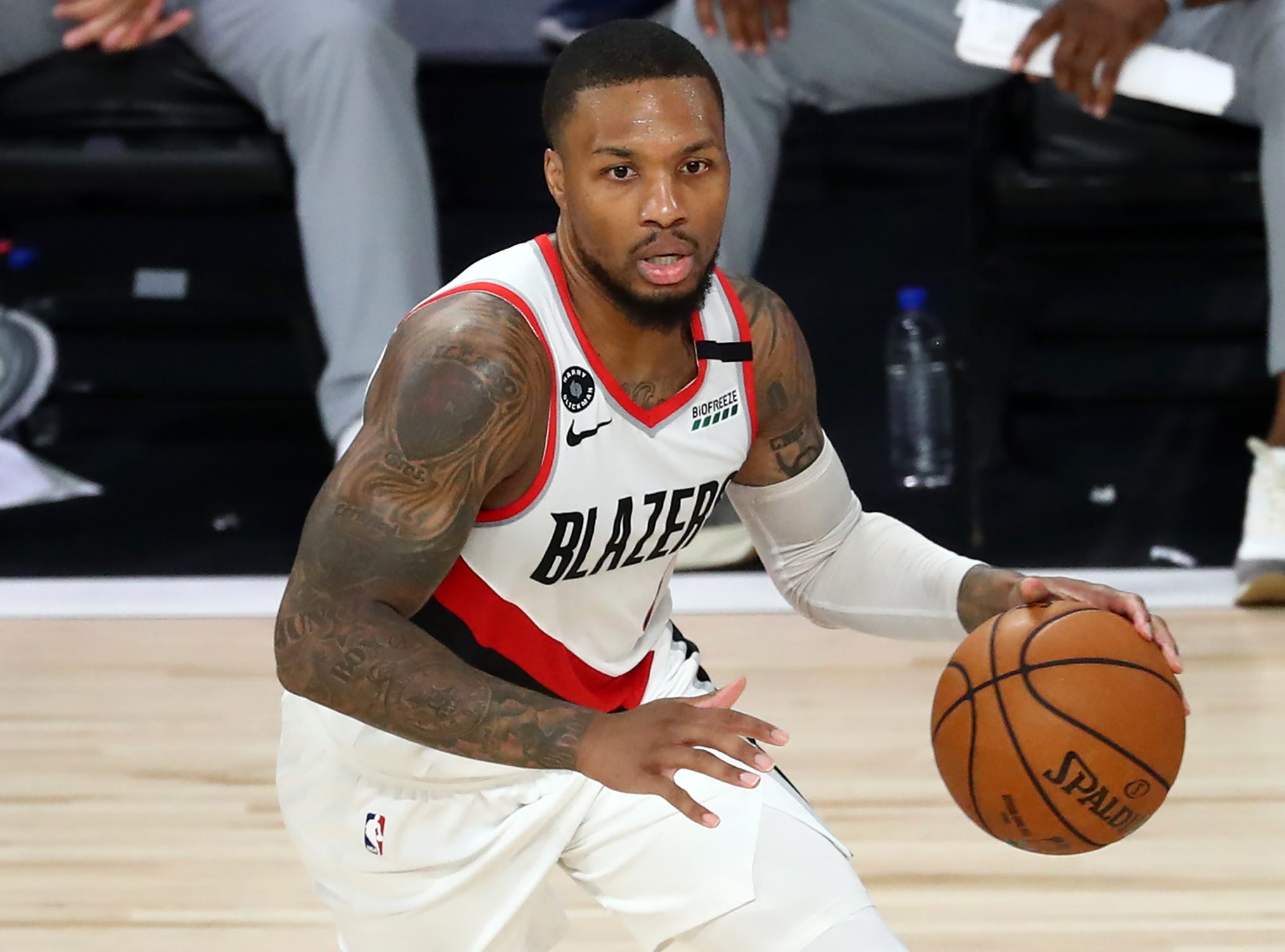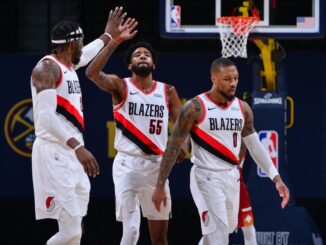
The Portland Trail Blazers are in a tricky spot. Three first-round draft picks? That’s a good thing. Zero roster spots available? Not so good.
Conventional wisdom points to Rip City going the draft-and-stash route in the 2017 NBA draft. It would be unreasonable to assume the team uses all three on foreign prospects, but it’s easy to see the franchise playing it safe and using two of those top-30 selections on long-term, overseas projects.
Here at Oregon Sports News, we’re not playing it safe.
For Portland to consider all of the following prospects, it would need to clear roster space. That means letting Pat Connaughton walk in free agency, ditching Festus Ezeli (as expected) and swinging at least one multiplayer trade that returns only a single contract.
Of course, general manager Neil Olshey may also go the trade route during draft night. Paul Allen loves the league’s annual talent assemblage and swinging a deal to move up would certainly have its appeal.
But in this case, we’re going to make the argument that the Blazers should put together a draft night blueprint that involves keeping all of its picks as a means to improve and replace certain incumbents.
Breaking up is hard to do when it comes to guys potentially on their way out, but following an inconsistent season and a disappointing playoff run, it will be worth seeing what other fish are in the sea via the draft this June.
No. 15: Jarrett Allen (Texas, C, Freshman)
With the addition (and subsequent success) of Jusuf Nurkic, the Blazers don’t need a future star at center. But with his injury history already becoming a concern—not to mention the release of Festus Ezeli—the Blazers could use a legitimate backup 5 next season.
Jarrett Allen will enter the league at 6’11”, 224 pounds, but it’s his length that should have fans in Portland excited. At the combine, his wingspan measured in at 7’5 ¼”, which was only exceed by two other plays.
He’s not a terrifying defender at the rim, but he’s started to show versatility on the other end with an improved mid-range game that will help keep the Blazers’ offense in rhythm when Nurk goes to the sideline.
As much as we like to see Meyers Leonard succeed, the experiment there is over. We know what we’re getting out of him and it’s not consistent. We also know what we’re getting out of Ed Davis, a strong rebounder and rim-protector who can’t score away from the bucket.
With Allen, there’s plenty of time to groom him for the future. At 19 years old, he’s nowhere near his ceiling, and his 16.2 points-per-game average (59.9 percent) during conference play at Texas gives the Blazers a big-man option on offense in the second unit.
No. 20: Harry Giles III (Duke, F, Freshman)
As far as this exercise is concerned, we’re staying away from draft-and-stash prospects. Remember: We’re not playing it safe.
With that in mind, Harry Giles III should be tempting at 20 if he’s still available.
The Giles story is one of a player who saw his draft stock drop drastically following multiple injuries. This is a kid who has dealt with knee problems (three surgeries already), but was considered by some to be a potential No. 1 pick entering his freshman season at Duke.
If Portland isn’t going to use this selection on a foreign, long-term project, Giles makes perfect sense. Swing and miss? No big deal. You already have two first-round prospects to go with him.
Swing and hit a homer? You look brilliant and find a rotation piece at worst and a potential starter if all the stars align.
No. 26: Jordan Bell (Oregon, F/C, Junior)
The Trail Blazers have historically made it a priority to work out at least one local kid. Whether it be a Portland native trying out before heading overseas or a UO/OSU prospect, Rip City makes sure to look at those nearby.
As far as 2017 is concerned, it should be Oregon’s Jordan Bell. Teammates Dillon Brooks, Tyler Dorsey and Chris Boucher may all get courtesy looks as well, but it’s Bell, the 6’9” power forward, who should have Blazers executives drooling.
Depending on how Bell’s pre-draft workouts progress, taking him at No. 26 could be considered a reach. But think about the following:
- Portland needs a shakeup at the 4. If the team wants to run Al-Farouq Aminu as the starter in a small-ball lineup, fine. That’s probably best with the current logjam also at the 3. But Noah Vonleh isn’t getting better, Davis has hit his ceiling and Leonard isn’t a consistent enough shooter to justify using him to regularly spread the floor.
- His pre-draft performances have been impressive. He played well in five-on-five situations at the Combine, his athleticism appears to be off the charts and he’s proving to be more than just a flash in the March Madness Pan.
- His draft stock is actively rising. Bleacher Report’s Jonathan Wasserman has him going 30th to the Utah Jazz, has him at No. 27 in his most recent big board and net has him going 28th to the Lakers.
Reaching on any prospect can be dangerous, but when you have three first-round picks and an already-established Big 3 as your core, you can afford to take some risks.
Bell’s energy, defensive prowess and improving offense all make the selection well worth the uncertainty.




1 Trackback / Pingback
Comments are closed.